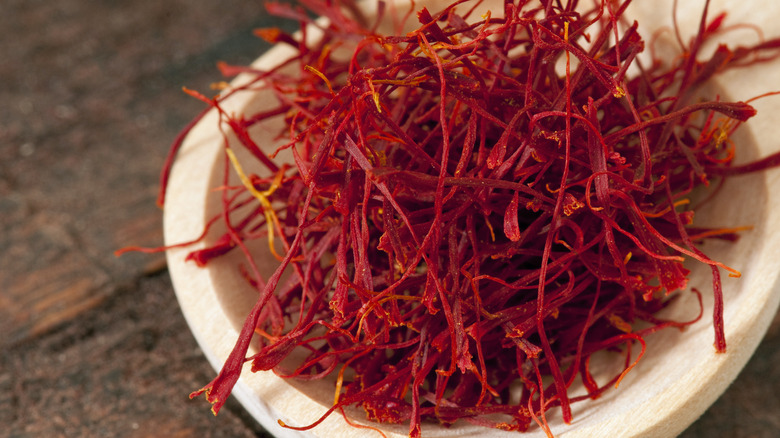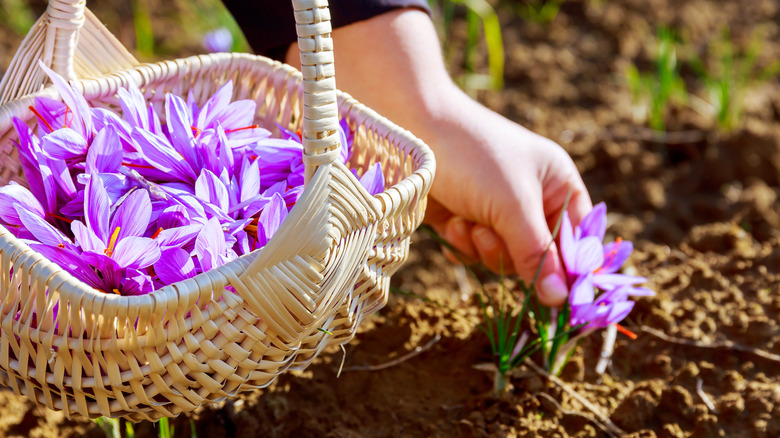The Signs Your Saffron Is Fake
Gourmet chefs and foodies are doubtlessly familiar with saffron, a distinctively flavored spice that's also among the world's most expensive. For this reason, it's also a frequently faked ingredient, which can be a major disappointment for those who've wasted their money on a substandard or potentially dangerous product. However, there are some simple ways to check whether you've got the real thing.
The most straightforward (and foolproof) method is to test the saffron in water. Add a few strands to hot water and observe the results. Genuine saffron will remain intact and gradually infuse the water with a yellowish color. Fakes will bleed their color, which may be reddish or orangish instead of the authentic yellow, into the water much faster. They may also quickly fall apart.
If you're still in doubt, give the water a taste. Authentic saffron infuses water with an earthy, grassy, subtly sweet floral flavor. In contrast, fake versions will leave a bland, sometimes even chemical-heavy, taste immediately apparent to those who've enjoyed the real thing.
The reason for the fakes
Some also test saffron by touch, rolling a strand or two between their fingers after a brief soak in cold water. Threads that fall apart or turn to dust or liquid are likely fake or at least low quality.
You may wonder why fakes are so problematic compared to the many other spices on the market. The reasons are the same as why saffron is the most expensive spice in the world — its rarity and the painstaking labor required to produce it. Saffron is part of the Crocus sativus flower, which only grows three strands per plant. That means it can take up to 75,000 plants to harvest one pound of saffron, all of which needs to be picked by hand. This uniquely complex process leads to prices of $5,000 to $10,000 per pound for top-quality varieties.
If saffron is a bit too high-end for your budget, or you find yourself tossing out a jar of low-quality, fake saffron, don't fret. There are some options you can substitute for saffron, even if nothing can completely replicate this highly-priced, highly prized seasoning.

